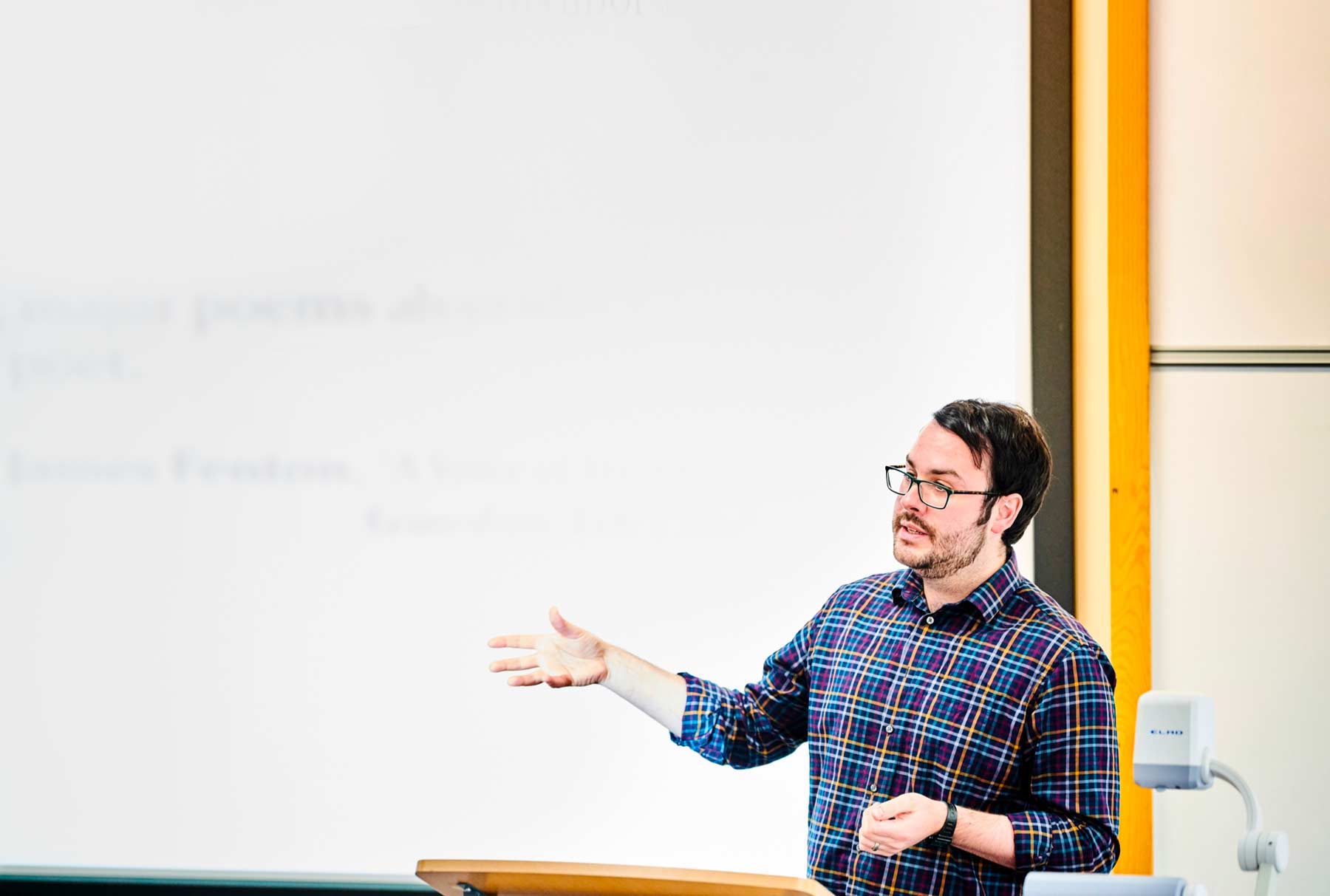Staff Profile
Dr Faye Smith
Lecturer in Speech and Language Sciences
- Telephone: 01912088625
- Address: School of Education, Communication and Language Sciences
Room 1.04
King George VI Building
Newcastle University
Queen Victoria Road
Newcastle upon Tyne
NE1 7RU
Background
I studied for a BSc in Psychology and an MSc in Reading, Language and Cognition at the University of York. I then undertook a PhD looking at the early linguistic and cognitive profile in children with Down syndrome, with a particular focus on how poor health interacts with language and cognition. Subsequently I completed two postdoctoral research projects; one looking at sleep and vocabulary consolidation in children with and without dyslexia and a second investigating the behavioural and neural links between auditory sequence processing and language/literacy skill across adolescence.
I carried out my second postdoctoral project here at Newcastle University, in the Institute of Neuroscience, and in September 2016 I joined Speech and Language Sciences as a lecturer. In this role, I teach student speech and language therapists about key aspects of psychology, with a focus on developmental psychology, social psychology and mental health.
I am currently Degree Program Director of the 2-year MSc Language Pathology course, the postgraduate, clinical pre-registration Speech and Language Therapy degree course.
Qualifications
PhD Psychology - 2014, University of York
MSc Reading, Language and Cognition - 2010, University of York
BSc Psychology - 2009, University of York
Previous Positions
2015 - 2016 - Research Associate, Newcastle University
2014 - 2015 - Research Associate, University of York
Sept-Dec 2013 - BPS Postgraduate Fellow, Parliamentary Office of Science and Technology
Memberships
British Psychological Society (BPS)
Society for the Scientific Study of Reading (SSSR)
Areas of Research Expertise
- Children's reading for pleasure
- Dyslexia
- Sleep and language development
- Links between communication difficulties and emotions/behaviour/mental health
- Cognitive underpinnings of language and reading development
Research Interests
Broadly speaking, I am interested in typical and atypical language and literacy development. I have conducted research with children spanning wide age ranges who have language and/or reading difficulties using a diverse range of methodologies, including EEG and MRI studies, large-scale observational studies, behavioural experiments and qualitative survey and interview studies.
At present, my main areas of research interest are:
- Parent-child shared reading across the school years. An ongoing program of work is investigating how parents and children share books beyond the preschool years and how we can best support more family book sharing to benefit children's reading for pleasure and wellbeing. We recently completed a survey and interview study with parents of children aged 7-12 and reported the results at the Child Language Symposium 2024 (abstract). We also ran an event at the Discover Festival 2025, engaging with parents and children to share some of our findings (research summary).
- The links between preschool sleep and language development. With colleagues Dr Vic Knowland (PI) and Professor Cristina McKean, we have recently been awarded a grant from the Nuffield Foundation (2025-2028) to evaluate our Sleep Boost intervention as an adjunct to language intervention for 2-3 year old children at risk of language difficulties. Through this project we aim to find out whether supporting sleep could support language development in preschool children with early language delays.
Postgraduate Supervision
I would be happy to hear from potential PhD students with an interest in any of the above areas.
Current PhD students:
- Laura Chambers (2021 - present) - Bridging the Gap Between Language Impairment and Social, Emotional and Mental Health Difficulties in Adolescents: Developing an Effective School Based Intervention to Address the Dual Difficulties
- Han Grimes (2022 - present) - Understanding the linguistic, cognitive, and socio-cognitive predictors of differing trajectories in child language development: analyses of the Early Language in Victoria Study
- William Brown (2022 - present) - Improving support and retention in further education through cognitive screening and data science
- Katerina Stoumpou (2022 - present) - Compensation mechanisms in developmental dyslexia: the role of morphological skills
- Johanna Butler (2023 - present) - Learning to speak the language: An analysis of the language and communication interactions between therapeutic education practitioners (TEPs) and students in an independent therapeutic school
Completed PhD students:
- Melanie Ferk-Dornstauder (completed 2024) - The Use of Behaviour Change Techniques in Interventions for German speaking Children with Speech Sound Disorders: Identification and Training
- Olivia Outhwaite (completed 2024) - The relationship between anxiety, reading and eLearning in University students with Dyslexia amid emergency remote teaching during the COVID-19 pandemic : an analysis of self-reports and physiological measures
- Sheradan Miller (completed 2023) - Speaking to reading in English : investigating the relationship between prosody and reading comprehension with Year 3 children
- Holly Jenkins (completed 2022) - Processing-based measures of implicit statistical learning of artificial grammars
SPE1056: Brain and Behaviour Across the Lifespan I: Introduction to Psychology and Social Interaction
SPE3055: Brain and Behaviour III: Neuropsychology and Psychiatric Disorders
-
Articles
- Jenkins HE, de Graaf Y, Smith F, Riches N, Wilson B. Assessing serial recall as a measure of artificial grammar learning. Frontiers in Psychology 2024, 15, 1497201.
- Jenkins HE, Leung P, Smith F, Riches N, Wilson B. Assessing processing-based measures of implicit statistical learning: Three serial reaction time experiments do not reveal artificial grammar learning. PLoS ONE 2024, 19(9), e0308653.
- Smith F, Griffiths TD. Developmental Language Disorder: What happens in the brain?. eLife 2022, 11, e82258.
- Smith FRH, Gaskell MG, Weighall AR, Warmington M, Reid AM, Henderson LM. Consolidation of vocabulary is associated with sleep in typically developing children, but not in children with dyslexia. Developmental Science 2018, 21(5), e12639.
-
Editorial
- Smith FRH, Henderson LM. Sleep problems in children with dyslexia: understanding the role of sleep in neurocognitive development through the lens of developmental disorders. Acta Paediatrica 2016, 105(9), 999-1000.
